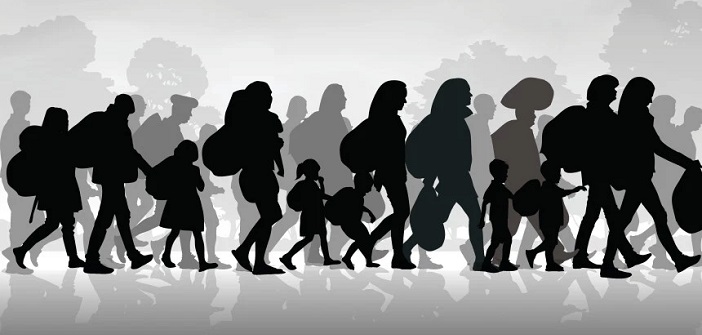The debate on immigration, more so than any other, suffers from an excess of simplification that does not do justice to the complexity of this issue.
Immigration brings diversity, but not all diversity comes from immigration. Contemporary societies are increasingly diverse. Normalizing and managing this diversity is an imperative for democratic health to combat hatred and inequalities.
A sensible and calm debate is essential to confront xenophobic populism that fuels lies and half-truths and any other phobia that makes coexistence difficult.
Ten reflections that seek—without pretension—to nuance, deepen, and foster a flexible debate without sacrificing rigor.
No to maximalism. Extreme positions can be held when discussing immigration (from Zero Immigration! to Open the Borders!). But maximalism leads us to ideological simplifications, being swayed by emotions, with the risk of erring in excess, from hatred and fear of the unknown to paternalistic, white, Eurocentric naivety riddled with post-colonial guilt.
Zero Immigration? At one extreme of maximalism are those who declare themselves anti-immigration and believe it is possible to achieve zero immigration. For any country with even the slightest attractiveness (tourism, foreign trade, etc.), borders never delineate watertight compartments. Building airtight borders is an unattainable fantasy.
Open Borders? The unnuanced discourse advocating for open borders is found at the other extreme.
The movement of people between territories with very different living standards and individual rights without authority intervention generates all sorts of exploitation. The lack of nuance might explain why the discourse advocating open borders is claimed by sectors as different as a certain moralizing left and ultraliberalism.
Immigration is not always economically good or bad. The economic impact can vary in the short, medium, or long term and generally depends on the social and productive structure of each society and the composition of its migratory flows. While it is true that most studies do not detect a negative impact of immigration on the wealth of countries, the same cannot be said for the impact of some migratory flows on inequalities. An example: the increase in the labor supply in some of the least regulated niches of the labor market can worsen the conditions for all workers, regardless of their country of birth.
There is also a certain maximalism when looking at the effects of immigration on countries of origin (brain drain, brain gain, brain waste, among others), although our egocentrism tends to ignore these issues.
Immigration management is a public policy. Immigration policy is a public policy with a transversal influence on other aspects of the organization of society, even if it is not often considered in these terms. In a state of law, it is necessary to regulate and guarantee public services such as education or sea rescue, and not leave them arbitrarily in the hands of third parties without accountability.
Humanitarian law, It is legitimate to debate the scope of immigration (for example, whether to include climate refugees), but abandoning international agreements on immigration for humanitarian reasons is an entirely different matter that would attack the cornerstone of our system of rights and freedoms.
Community responsibility or guilt? Much has been said about the role played by the European Union in the humanitarian crisis we have been experiencing for years at the borders of Europe. However, it is important to remember that, so far, the States (and the governments Europeans have elected) have decided that immigration is a national competence and that the Commission should have a very limited margin of maneuver. It would be desirable to transfer competencies on immigration, borders, and asylum rights to Brussels.
Immigration policy is not a security policy. It cannot be solely focused on borders. Immigration is a long-term social phenomenon that culminates with the integration of migrants into their host societies. Managing immigration from the borders is a shortsighted public policy that ignores its long-term effects, and is undesirable as it constructs immigration as a threat.
It is not a cooperation policy either. Cooperation policy is another public policy that must be designed to achieve its own objectives (such as the UN’s Development Goals) and with its own tools. Thinking that migratory flows can be “controlled” by development cooperation can only lead to poor cooperation policy and poor immigration policy.


